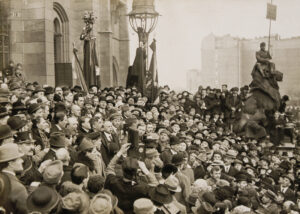Velencében „Afrika szól a világhoz”

18. Velencei Építészeti Biennále 2023, 05. 20 – 11. 26.
Az idei „Jövő laboratóriuma” hívómondatot a központi kiállításokat (Arsenale/Giardini) jegyző Lesley Lokko ghanai-délafrikai építésznő adta ki. Afrikáról nyilatkozta: itt a legalacsonyabb a lakosság átlag-életkora, … Tovább »















